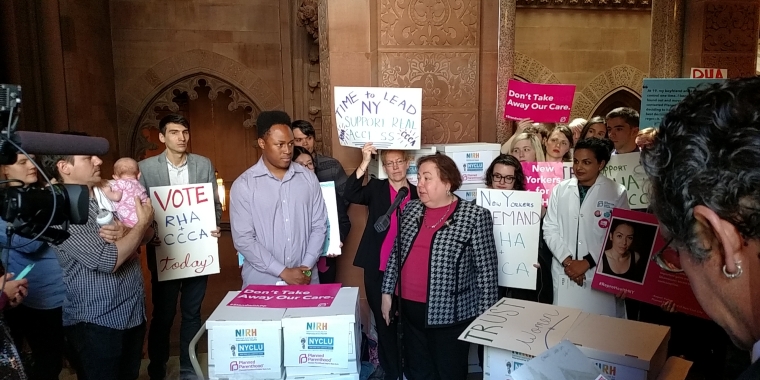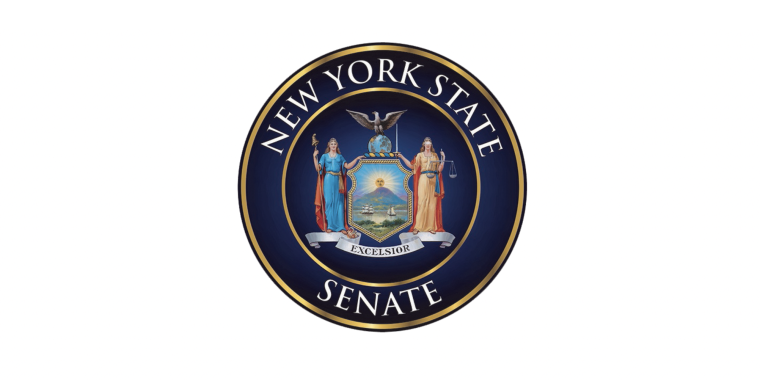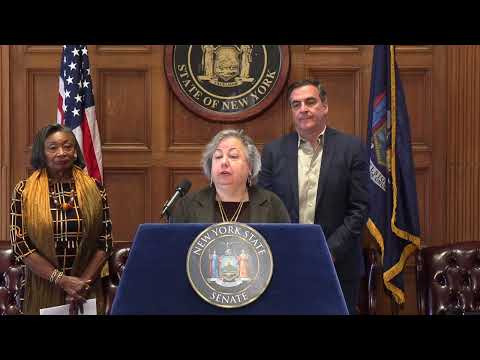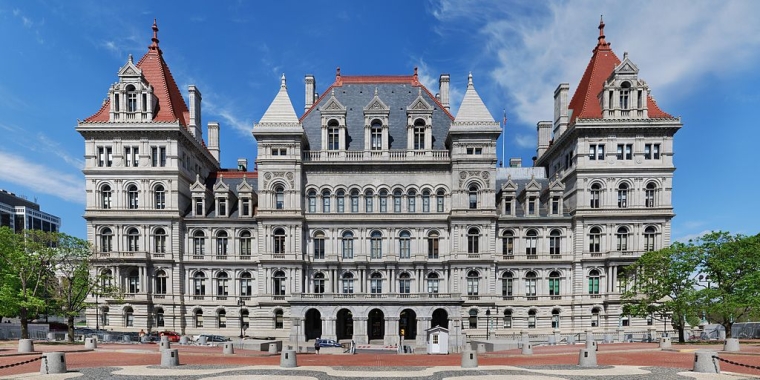
56 NYS Legislators Join Nearly 900 Around The Country Urging Supreme Court To Uphold Roe v. Wade
September 22, 2021

Albany and Washington, D.C. – On Monday, State Innovation Exchange’s Reproductive Freedom Leadership Council — a network of state legislators working to advance reproductive health, rights, and justice — organized an amicus brief in support of legal abortion in Dobbs v. Women’s Health Organization, the Supreme Court case likely to decide the future of reproductive freedom in the United States. The brief, signed by 897 state legislators, including 56 New York Assembly Members and Senators, all members of the New York State Bipartisan Pro-Choice Legislative Caucus, represents the strongest showing ever recorded of state legislators supporting legal abortion nationwide.
“For many years before we passed the Reproductive Health Act in New York, we were told by opponents of choice that it was unnecessary, because the Supreme Court would never consider overturning Roe v. Wade," said Senator Liz Krueger, BPCLC Co-Chair. "Yet here we are, a mere two years after passing the RHA, and a Court packed with radical partisan extremists will decide whether or not 160 million Americans have the basic human right to control their own bodies. Overturning Roe would be the single most significant step backwards for American women in the history of our nation."
“The Court’s recent decision to allow the clearly unconstitutional Texas anti-abortion law to take affect is truly appalling and goes against longstanding precedent” said Assembly Member Karines Reyes, R.N., BPCLC Co-Chair. “The judicial activism shown by the Court’s conservative majority is regressive and denies women in Texas equal protection under the law. I am heartened by the fact that New York State legislators, more than in any other state, have made the choice to join the legal fight in support of protecting a woman’s right to choose.”
The Mississippi law at the heart of the case banned abortion services after 15 weeks of pregnancy — well before the 24-week precedent established by Roe v. Wade. Despite multiple lower courts’ rulings that the law was blatantly unconstitutional, the Supreme Court agreed to hold oral arguments to determine whether all pre-viability abortion bans are constitutional. In their amicus brief, the state legislators argue that the Court’s failure to uphold the rule of law and precedent would result in disastrous consequences for women seeking abortions, as well as for their families.
Arguments in Dobbs v. Women’s Health Organization will come on the heels of Texas enacting a law that effectively bans all abortions in the state after six weeks of pregnancy and emboldens any citizen to surveil and harass virtually anyone under vigilante claims of noncompliance. The Texas law is just one of nearly 600 abortion restriction bills introduced in 2021—the worst year for state legislative attacks on abortion since the Roe decision. Many more restrictions are expected, as several state officials have indicated they are looking to mimic the Texas law in their own states.
Public sentiment is overwhelmingly in favor of keeping Roe, according to a recent Data for Progress poll, with 60% in favor and 23% against. By a 2–1 margin, voters also strongly disapprove of allowing citizens to sue individuals they suspect of helping someone get an abortion—the cornerstone of the Texas bill.
"The decision about whether to have an abortion is deeply personal," said Senator Krueger. "It involves a complex weighing of a woman’s unique circumstances, her medical needs, her private morality, and her own body. That is why it is a decision that must be made by a woman and her healthcare provider alone – not by the government. This is the law of the land established under Roe, and the majority on the Court must now decide if they will uphold the law, or if they care so much about controlling women's bodies that they are willing to destroy the reputation of the Court and turn back the march toward equality for half the population of this country."
###


